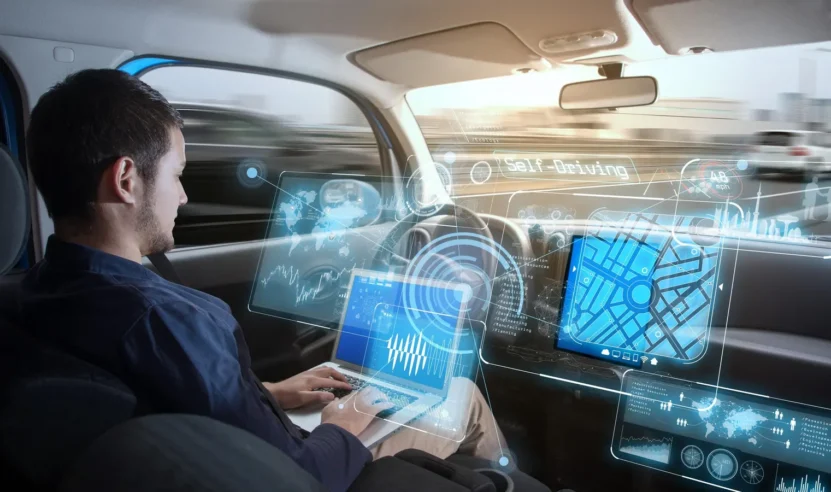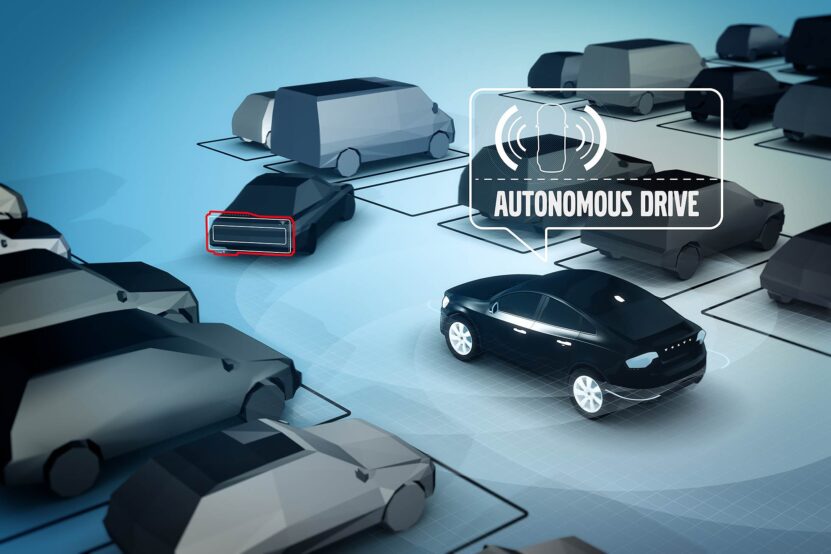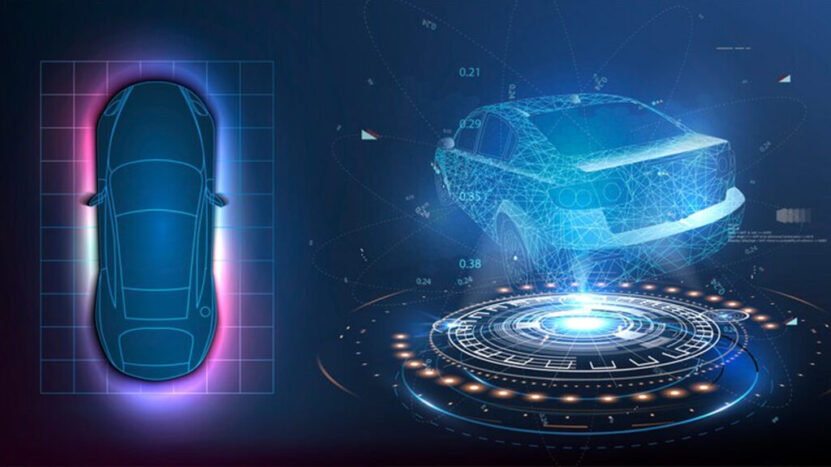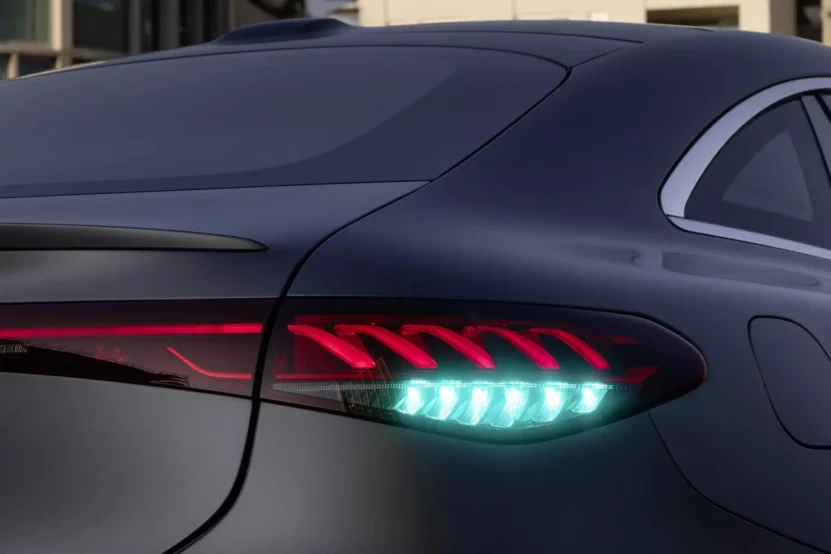Artificial intelligence is spreading like wildfire for a bunch of reasons. Like any revolutionary machine, it is mainly centered around making people’s lives easier. Due to its infinitely large domain, AI is applicable in every aspect you can think of, including the automotive industry.
AI and cars go together like peanut butter and jelly. This is why it is making waves with many ideas which include self-driving cars. But while that is a far fetched idea, currently there are many other developments when it comes to AI in automobiles.
Below are four of the latest technologies that we could see in the short-term:
High-Tech Voice Assistant Systems

We all love voice assistance, right? From Apple’s siri to the voice-assisted sat-nav in high-end vehicles, everyone loves communicating with their machines in order to give them instructions. Well, expect this technology to get even better thanks to the geniuses over in Germany.
Firstly, the Bavarians are developing an AI voice assistant that works in unison with Amazon Alexa. This is a system that should be able to do it all from answering the silliest questions to actually controlling your BMW’s infotainment system.
Those who already own an Alexa device will feel right at home while driving. The system will be quite an interesting companion for you no matter how long and tedious your drive might be. It should make the experience easier since BMW’s current systems are complicated to use.
Then come the scientists from Wolfsburg at VW, who are developing their new system with something you’ve all heard of and used: ChatGPT. Like Beamer, this system will also allow you to control the vehicle with your voice in the realms of infotainment, climate control, etc.
Of course, with the chatbot application, it should be able to do a lot more such as give you advice, give you tips, help you with your schedule, or even your homework. VW says that they’ll continually update it to keep it useful and expand its domain.
You can expect this feature to be a standard offering in some regions, but it is scheduled for next year. Rest assured that the controls in the hands of the voice assistants should make cars safer as the drivers will keep their eyes on the road.
Furthermore, the integration of AI voice assistants into automotive systems is not limited to BMW and VW alone. Japanese automakers like Toyota and Honda are also delving into this technology, aiming to enhance the in-car experience for their customers. With tech giants like Google and Microsoft partnerships, those manufacturers are working on voice assistant systems that seamlessly integrate with their vehicles’ infotainment systems.
Speaking of automotive safety, it is important that you use and sell genuine car parts. Genuine parts are the backbone side of a vehicle’s functionality and safety. From engine components and braking systems to high-tech innovative systems, each simple part plays a key role in all vehicles’ type optimal performance insurance, safety and longevity.
Efficient automotive parts supply is essential for ensuring timely access to components worldwide. A reliable automotive parts supplier provides delivery of parts in time, as well as minimizing downtime and optimizing vehicle maintenance.
Autonomous Valet Parking

The automobile was a great invention until everyone got one – then came parking issues. Thankfully, the brains at Continental – another German company – are developing automatic valet parking. It aims to make an excruciating endeavor a thing of the past.
Should the technology be implemented, your car will have the liberty of parking itself while you go about your business. The best part is that they are talking about updating the infrastructure in parking lots so this technology won’t just be limited to the latest and priciest vehicles.
The technology should save your time, and decrease the number of accidents caused by human error. Speaking of errors, it would definitely help use up the parking spaces more efficiently as many people tend to park like amateurs just because they’re in a hurry.
In addition to Continental’s efforts, other companies are also pushing the autonomous parking technologies’ boundaries. Silicon Valley-based startup, Tesla, is working on an advanced Autopark feature that will enable to navigate parking lots and garages autonomously with its electric vehicles. Leveraging its fleet learning capabilities, Tesla aims to refine this feature through over-the-air software updates, gradually improving its accuracy and reliability. This innovation represents a significant step towards solving urban parking challenges while paving the way for fully autonomous driving in urban environments.
AI-Backed UI

Mercedes Benz is also working hard and well on their AI technology. The Stuttgart-based company is currently promoting a ground-breaking user-interface that’ll change itself according to the feelings of the driver. It’ll do it all which includes giving advice to the driver according to their schedule.
It’ll also be able to detect the driver’s mood and set itself accordingly. While the prompts will change, so will the visuals as the system will feature attractive graphics. The graphics will also provide the driver with a wide range of information to make the experience better and safer.
Moreover, the development of AI-driven user interfaces extends beyond Mercedes-Benz. Luxury automakers such as Audi and Lexus are investing heavily in this area, seeking to deliver personalized driving experiences tailored to individual preferences.
AI-powered systems are able to anticipate user needs and adapt interface elements in real-time, optimizing comfort, convenience and safety by analyzing driver behavior and biometric data. As competition intensifies, we can expect to see a proliferation of AI-enhanced UIs across a wider range of vehicle segments, democratizing this technology for all drivers.
Turquoise Headlights

Sticking to AI in cars made by Mercedes, we can expect the company to provide special lighting to its self-driving cars. You can expect turquoise-colored lighting to be turned on whenever the autonomous driving mode is engaged.
This should be offered on the flagship ‘S’ models (gas and electric) since they offer the highest level of autonomous driving. However, it will only be available in selective states, i.e. the ones that will allow autonomous driving capability.
The tech is not just to spruce up the exterior of these vehicles, but it is also a great way to alert others on the road that they’re currently driving themselves. It should make autonomous driving safer for everyone.
Furthermore, Mercedes’ turquoise-colored headlights are not just a stylistic choice but also serve a practical purpose. Other manufacturers, including Volvo and Ford, are exploring similar lighting technologies to enhance the visibility of autonomous vehicles on the road.
Those specific lights serve as a visual cue to alert pedestrians and other drivers of autonomous vehicles’ presence and promote safer interactions in mixed traffic.
As regulatory frameworks evolve to accommodate autonomous driving, we can expect such signaling technologie widespread implementation to facilitate the integration of self-driving cars into existing traffic patterns.
